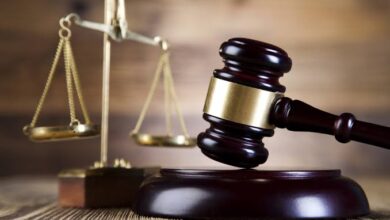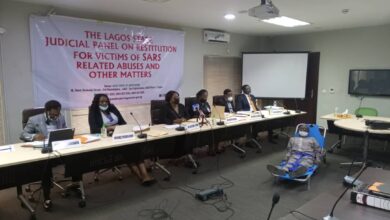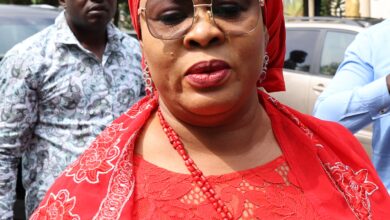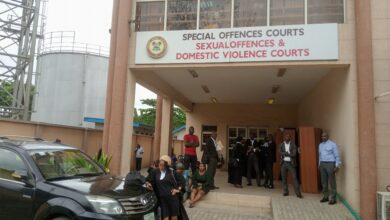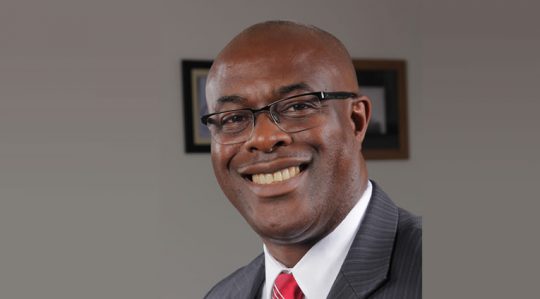
In a deeply inspiring and thought-provoking address to a youthful audience in Rwanda, Mr. Kelechukwu Mbagwu, the Chief Executive Officer of CMB Building Maintenance and Investment Company Limited, did more than deliver a guest lecture, he issued a clarion call to Africa’s next generation of leaders, challenging them to embrace change, unlock their potential, and rise to the demands of an unpredictable world.
Speaking with candor and charisma, Mbagwu opened his speech by humbly dismissing the honor bestowed upon him, referring to himself as a “non-intellectual.”
Yet, what followed was a masterclass in motivation, laced with personal anecdotes, historical reflection, and hard-earned wisdom that only decades of entrepreneurial resilience could birth.
From Rwanda’s History to Youthful Hope
Setting the tone with an evocative reflection on his impressions of Rwanda through the years from childhood images in the Guinness Book of Records, to haunting headlines of the 1994 genocide, and now to the awe-inspiring success story that Kigali represents today — Mbagwu’s narrative was a metaphor for redemption, resilience, and rebirth.
His reverence for Rwanda’s transformation from tragedy to triumph offered the perfect backdrop for the message he had come to deliver: success is forged not in comfort, but in commitment to change and excellence.
“I would not attribute this only to good governance,” he noted, “the enterprise and industry of the entire Rwandan people must have injected the positivity into this success.”
That ethos of self-driven transformation is exactly what Mbagwu demanded from the graduating class.
Redefining the Value of a University Education
Mbagwu challenged conventional perceptions of education.
He did not romanticize dropout billionaires or downplay the academic achievement of the graduates; instead, he offered a balanced and powerful redefinition of the university experience.
“A first degree doesn’t make you an expert in any field,” he declared.
“It has, however, prepared you for success in a lot of different fields… because it has displayed to all that you have the ability for logical thinking up to a very high level.”
To the youth, this was not just advice — it was a validation. Whatever they studied theatre arts or quantum physics, their success was no longer defined by the title on their certificate but by the capacity for thought, resilience, and reinvention that they had developed.
A Personal Testament of Grit
Mbagwu’s story is more than inspirational rhetoric it is evidence.
A graduate of Geography and Planning, he defied traditional career paths to build CMB, one of Nigeria’s foremost property development companies.
And when the COVID-19 pandemic nearly dismantled the empire he built, Mbagwu didn’t cower.
He regrouped, restructured, and resurrected his business, proving that failure is not a finality but a phase for those with vision.
He recounts with a touch of humor how he was repeatedly referred to as “Engineer Mbagwu” in a business meeting an unintended but powerful recognition of his deep involvement in a field he had no formal academic training in.
“Although I do employ engineers,” he laughed, “I actually am not an engineer.”
The point was clear: success isn’t always about titles; it’s about results.
Real Estate and the Youthful Future
Beyond his message, Mbagwu’s impact on real estate stands as a model for aspiring entrepreneurs.
Through CMB, he has helped redefine urban development and middle-class housing in Nigeria.
His developments from gated estates to luxury apartments are not just buildings; they are blueprints for sustainable living, driven by a vision that blends business acumen with social responsibility.
But perhaps his greatest contribution lies not in the physical structures he has built, but in the mental frameworks he’s inspiring young Africans to construct, frameworks of courage, innovation, and belief in self-worth.
The Challenge
“You stand at the dawn of your greatest triumph,” Mbagwu told the graduating students.
It was not a closing line; it was a charge, a declaration that the future is not something to be feared or waited for, but something to be taken, built, and shaped with purpose.
In a continent teeming with potential yet plagued with systemic challenges, leaders like Kelechukwu Mbagwu serve as vital bridges, not just between ideas and action, but between generations. And in challenging young people to be bold, to be resilient, and to think beyond limits, he is doing more than motivating, he is laying the foundation for the next Africa.
“The foundation is logic. The tools are courage, resilience, and innovation. The time is now.” – Kelechukwu Mbagwu



